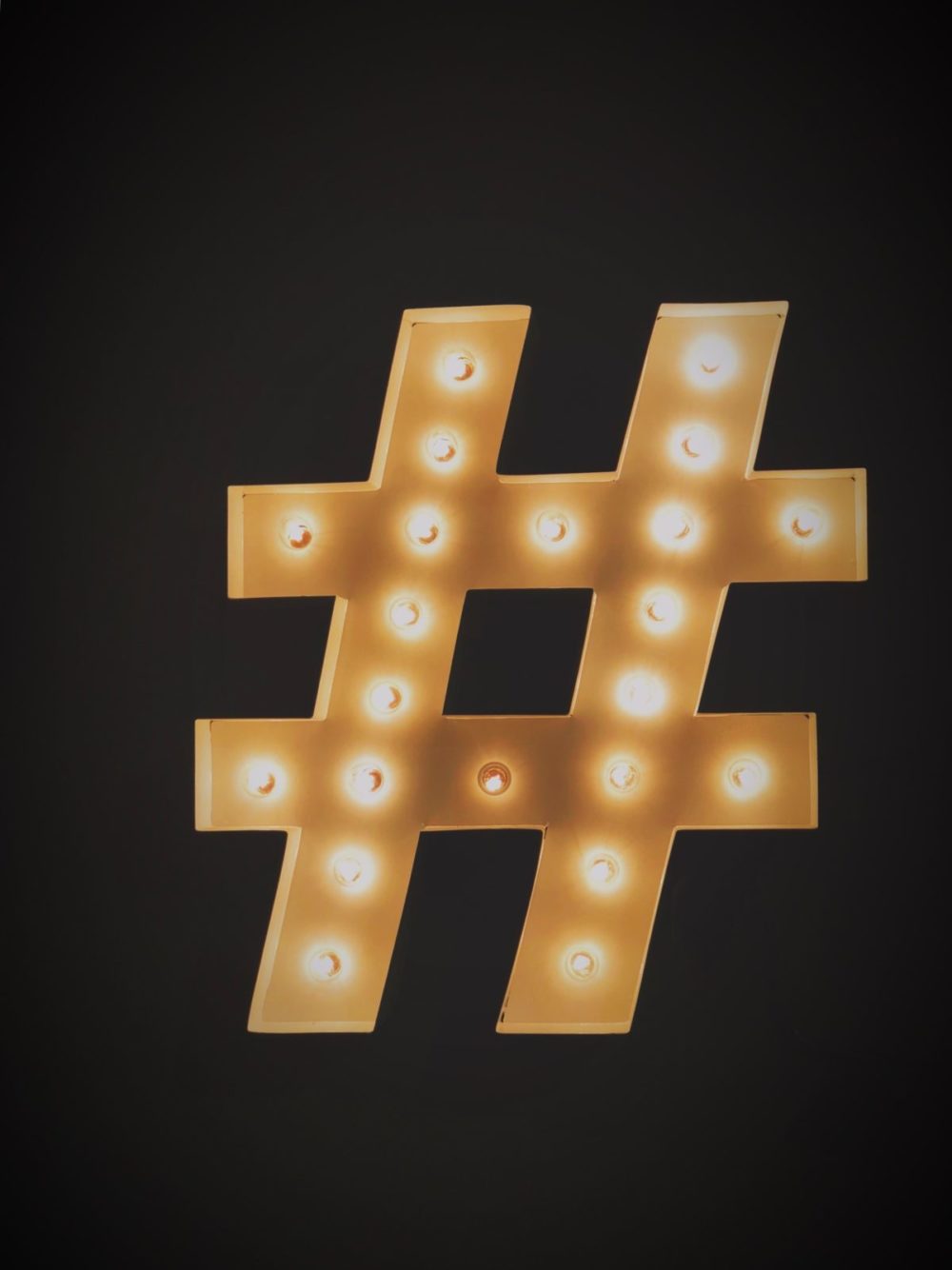How to choose the right hashtag for your brand
- Last Updated : August 17, 2023
- 10.7K Views
- 5 Min Read

There are two kinds of brands (and people). The ones who hashtag with brevity and a measured hand, and the ones who open the floodgates, letting a deluge of hashtags drown any piece of social media content they upload. While this dichotomy makes for interesting analysis, our agenda here is a little more practical. We’re going to look at what your brand should be doing with #hashtags in the social media space.
Before you fire away like a #pro with #swag, understand that littering your posts with hashtags is not going to win your brand any marketing points. The social media landscape is in a perennial state of flux, and this affects not only how much white balance is attractive on your profile photo but also how many hashtags you can throw around before your posts become an eyesore.
Back in 2007, Chris Messina made this legendary tweet, which is basically the documented birth of the hashtag as we know it.
Today, hashtags are useful communication tools that spawn millions of daily discussions on various topics. (#yogalife anybody?). They also work as an index, as hashtags have unique URLs, and all public tweets, grams, and posts using that specific # are indexed into public pages and archived.
Now that we’ve covered the basics, it’s time to check out some hashtag themes that can help your brand start churning out targeted content and, hopefully, add to your social strategy. After sifting through a debilitating number of hashtags—more than we can count—and letting the # symbol haunt our waking lives (just kidding, we <3 it), we decided to put our research to good use and curate a #failsafe list of hashtag themes that your brand can use.
1. Industry tags
As a brand figuring out the endless multiverse of social media, you’d want to find hashtags that will help push your content. You know, put your name out there and get you all those likes and shares. Seems simple enough, right?
Social media belongs to brands as much as it does to consumers. You have to constantly stay ahead of the game, because, let’s face it, you’re the one shaping the rules. What we mean is that it’s not nearly enough to know which hashtags are popular this week across social media. For a brand, using a hashtag starts with knowing your own turf first. Think about it—from small businesses who sprinkle their posts with #SmallBiz, right down to luxury and interior design companies popularizing #homedecor, businesses are looking for the right leads, not just any lead.
Suspend all that “reach a wide audience” rhetoric for a second and ask yourself if you’re speaking to the correct audience. We don’t want you to pull a Ted Mosby, giving an architecture lecture in Economics 101—that’s not just embarrassing but also a waste of your business’s time.
It’s time to stop flinging random popular hashtags at your posts and hoping that they’ll do the trick. Look for specific tags that match your industry and reach YOUR audience.
2. Evergreen tags
If you haven’t been under a proverbial rock, you’ve probably seen your fair share of popular hashtags, like #ThrowbackThursday or #MotivationMonday. In fact, if you take a look at the top 100 hashtags used across platforms, you’ll run into a vast number of evergreen tags, for two main reasons:
They’re universal – While they stick to a theme, there’s no one context that these tags are married to—and that makes them universal in nature. Brands, consumers, teens, working professionals, grandparents, and in some distant dimension, even cats are getting ready to #slay using these evergreen tags.
They’re easy to use – Certain hashtags have easy recall and reuse potential, which is why evergreen hashtags even exist. The biggest proof for this is that they’re still being used years since inception, without a shelf life.
For instance, the #OOTD (outfit of the day) is one of the popular Instagram hashtags that not both brands and consumers hop onto.
3. Calendar days
We believe there’s merit to the idea that if you’re doing something of interest, it’s nice to share it with the world. Whether it’s through a photo or just a hashtag, it’s what makes the social media world work. For brands, keeping up with holidays means more than warm feels—it’s a time to build interest in your business.
That’s the best thing about calendar day hashtags—they’re inclusive! Whether you’re a brand that’s completely out of ideas or one who’s nailing social media strategy, you can all virtually “celebrate” (read: market/sell your brand) with the yearly gastronomical-fare that’s #Thanksgiving, be excited for the gadget grab-fest that’s #BlackFriday, or even make up your own #NationalPetTurtleDay and get tons of people thinking it’s a real thing!
Check out our blog dedicated to holiday marketing.
4. Campaigns, causes, and event tags
These are your hashtag musts if you’re a brand on social media. From crafting catchy and interesting hashtags for your marketing campaigns to expressing solidarity for a cause that’s currently making waves on social media—there’s a lot you can do to put your brand on the map. The only golden rule to abide by is this: it should fit inside the framework your overall marketing goals.
And while all these tie into creating a good brand image, remember to always be earnest about it. If your brand doesn’t believe in a cause, don’t just jump into it—and never try to capitalize on it. Because here’s a pro tip: whether it’s one awful hashtag or a cesspool of spammy ones, bad social media posts don’t age well and can quickly land you in the Social Media Hall of Shame.
This glaring error by DiGiorno Pizza is your reminder that even if you’re usually good at your social media game, things can still go wrong in a moment—terribly wrong. This is an example of what can happen if you jump on a trending hashtag without knowing what it’s about.
That said, make it a point to watch your daily trends—these are a hashtag goldmine. Remember to only jump on the bandwagon if you have something meaningful to offer.
And if you’re a brand tweeting from events or conferences, do more than cliche event update posts that can easily be found on the official event page. Find something useful to say, or point out something quirky, observational, or even inspirational! That kind of content goes a long way in becoming a social media legend.
5. Conversation tags
Don’t let the title confuse you. The conversation hashtag is how you can flex your social media marketing muscle—because mastering the conversation hashtag means mastering the art of chit-chat. This can be anything from crafting witty replies to tweets or mentions of your brand, to starting a conversation with your audience around a topical subject.
A casual hashtag placed smartly in your tweet can really do a lot. It can:
build your social media dialog
humanize your brand
get engagements flowing
Here’s Subway nailing it with a poll that’s not really a poll at all, but an awesome conversation piece.
Of course, your conversation tags can have more purpose and brand-centric activities tied to it. For instance, the #AskTheExperts hashtag is used by many different brands, across verticals, who want to engage with their audience in real-time.
One important thing to remember is that you should only jump on a trend if you know you can add value to the hashtag, and not merely add to the noise. Like these guys here:
@Transport_gc, you did good!
Speaking of good, there’s nothing we like more than some good content to snack on. So share your favorite (or least favorite) hashtag campaigns with us—we’d love to exchange notes.
 Amruthavarshinii
AmruthavarshiniiChats & writes about anything from social media, culture, to how chai latte isn't a real thing.



Comments(1)
This article is very insightful in terms of the author’s systematic break-down of the very role that a hashtag can play,in terms of social context,and how in turn,it can potentially be a huge deal for a business. Very well written!